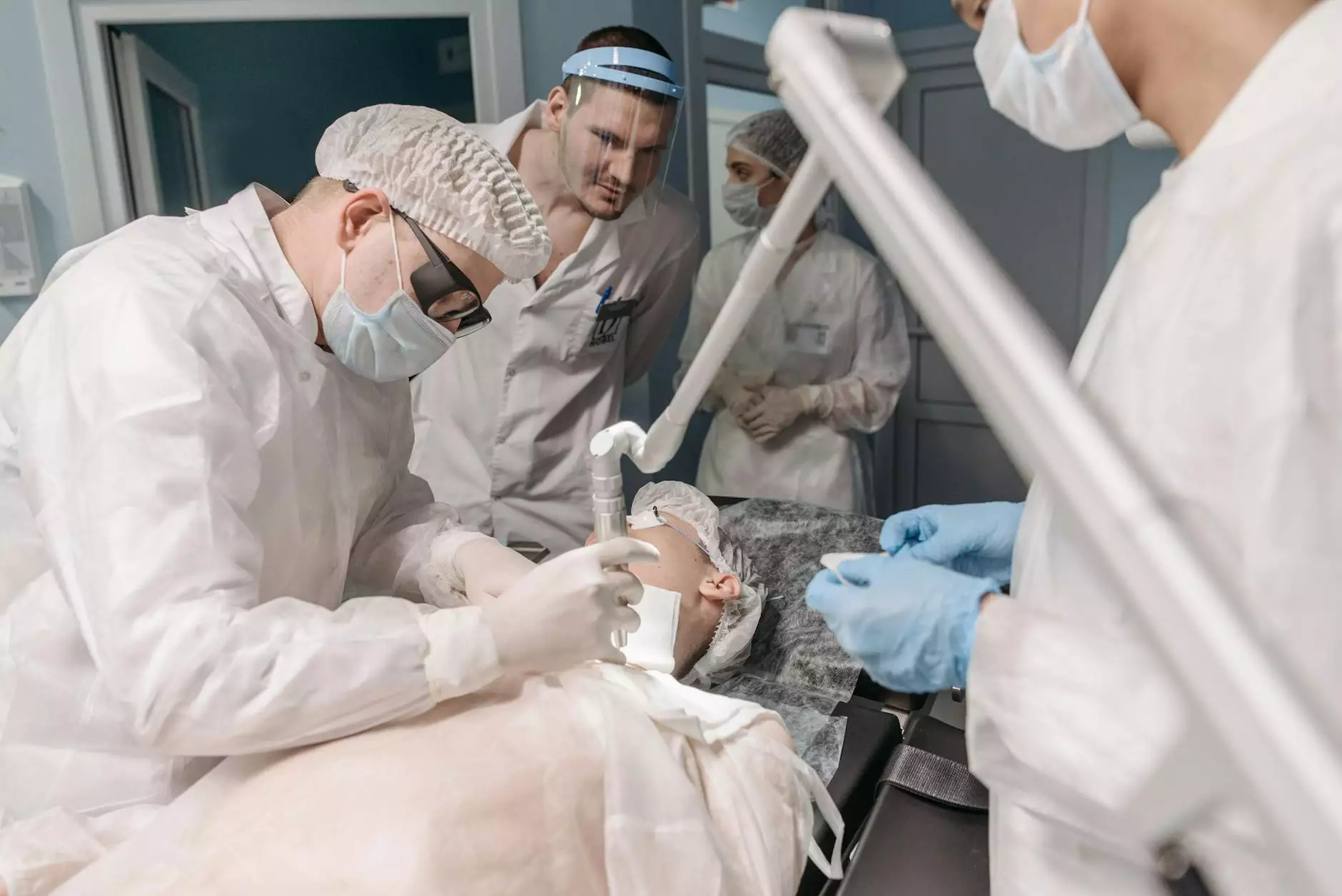Understanding Hysterectomy and Its Health Risks: A Comprehensive Guide by Experts at drseckin.com

The decision to undergo a hysterectomy is significant and often life-changing for women facing various gynecological conditions. While this surgical procedure offers relief from many health issues, it also carries potential health risks that deserve thorough understanding. At drseckin.com, our team of experienced obstetricians & gynecologists specializes in providing personalized care and comprehensive information to help women make informed choices about their health and wellbeing.
What Is a Hysterectomy?
A hysterectomy is a surgical procedure that involves the removal of a woman's uterus. Depending on the medical necessity and individual circumstances, other reproductive organs such as the cervix, fallopian tubes, and ovaries might also be removed. There are several types of hysterectomy procedures, including:
- Total hysterectomy: removal of the uterus and cervix
- Partial or sub-total hysterectomy: removal of the upper part of the uterus, leaving the cervix intact
- Complete hysterectomy with bilateral salpingo-oophorectomy: removal of the uterus, cervix, fallopian tubes, and ovaries
Hysterectomy is typically performed to treat conditions such as fibroids, endometriosis, chronic pelvic pain, abnormal bleeding, or cancer. While it can provide significant relief, understanding the potential health risks associated with this surgery is crucial.
Common Reasons for Undergoing a Hysterectomy
The primary indications for hysterectomy include:
- Severe uterine fibroids causing pain, bleeding, or pressure
- Persistent abnormal uterine bleeding unresponsive to other treatments
- Endometriosis leading to debilitating pain
- Uterine prolapse impacting quality of life
- Cancerous or precancerous conditions of the uterus, cervix, or ovaries
- Chronic pelvic pain not manageable through conservative measures
Although beneficial, the procedure is not without potential risks that must be weighed carefully against its benefits.
Understanding Hysterectomy Health Risks
Many women are aware of the immediate surgical risks, such as bleeding, infection, or injury to surrounding organs. However, the long-term health risks and subtle complications are equally important to recognize. Here, we delve into the most prevalent hysterectomy health risks based on current medical research and clinical practice.
1. Hormonal Changes and Menopausal Symptoms
When ovaries are removed during a hysterectomy (bilateral oophorectomy), women instantly enter a state similar to menopause. This abrupt hormonal change can lead to symptoms such as:
- Hot flashes and night sweats
- Mood swings and depression
- Vaginal dryness and discomfort during intercourse
- Sleep disturbances
- Loss of libido
These symptoms can significantly affect quality of life and may require hormonal replacement therapy (HRT) or other management strategies.
2. Increased Risk of Cardiovascular Disease
Research indicates that women who undergo early oophorectomy without hormone replacement may have an increased risk of cardiovascular problems later in life. The loss of estrogen’s protective effects on arteries can lead to a higher incidence of heart disease, emphasizing the importance of comprehensive post-surgical care and monitoring.
3. Osteoporosis and Bone Density Loss
Estrogen plays a vital role in maintaining bone density. Surgical menopause caused by ovary removal can accelerate bone loss, increasing the likelihood of osteoporosis and fractures if preventive measures, like calcium and vitamin D supplementation, are not adopted.
4. Psychological and Emotional Effects
Many women experience emotional challenges post-hysterectomy. Feelings of loss related to fertility and femininity, coupled with emotional upheaval from hormonal shifts, can lead to depression or anxiety. Mental health support and counseling are often recommended as part of holistic postoperative care.
5. Potential Impact on Urinary and Bowel Function
Some women report issues such as urinary incontinence or bowel disturbances after hysterectomy. These complications may arise from surgical trauma or changes in pelvic anatomy and require specialized management.
6. Risk of Surgical Complications
As with any surgical procedure, hysterectomy carries risks including:
- Bleeding excessive enough to require transfusion
- Infection at the surgical site
- Injury to nearby organs such as the bladder or intestines
- Adhesion formation leading to chronic pain or bowel obstruction
Additional Considerations and Preventive Strategies
While the potential hysterectomy health risks are real, they can often be managed with proper medical guidance. Here are essential considerations:
- Thorough Preoperative Evaluation: Detailed assessment of individual health status, including hormone levels, bone density, and cardiovascular risk factors.
- Choice of Surgical Technique: Minimally invasive approaches, such as laparoscopic or vaginal hysterectomy, tend to have fewer complications.
- Ovary Preservation: When appropriate, conserving ovaries can mitigate menopausal symptoms and long-term health risks.
- Postoperative Follow-up: Regular check-ups to monitor hormonal health, bone density, and cardiovascular health.
- Healthy Lifestyle: Balanced diet, regular exercise, smoking cessation, and stress management to reduce overall health risks.
- Hormone Replacement Therapy (HRT): Especially crucial if ovaries are removed, to balance hormonal deficiencies and mitigate menopausal symptoms.
Why Choose Expert Gynecological Care at drseckin.com?
At drseckin.com, we prioritize a patient-centered approach. Our team of experienced Obstetricians & Gynecologists specializes in minimally invasive gynecological surgeries, personalized treatment planning, and evidence-based management of all health risks associated with hysterectomy. We believe in empowering women with knowledge, supporting their physical and emotional wellbeing through every step of their healthcare journey.
Conclusion: Making an Informed Decision
While a hysterectomy can be life-changing and sometimes life-saving, understanding the comprehensive health risks involved is essential. Women should engage in open discussions with their healthcare providers, weigh the benefits against potential complications, and explore all available options. With advances in surgical techniques and a holistic approach to post-operative care, the risks can be minimized, and women can expect a high quality of life after recovery.
For expert guidance, personalized treatment plans, and reliable information about hysterectomy health risks and more, visit drseckin.com today. Your health and well-being are our top priorities.









